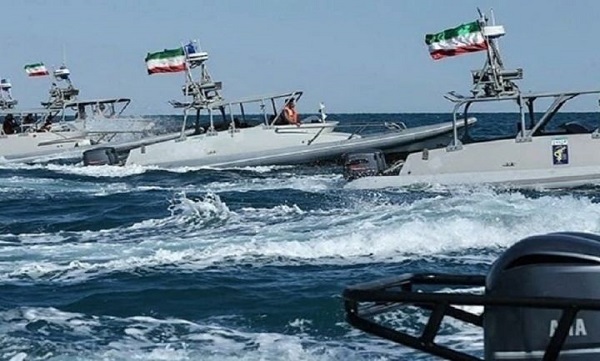The concept of “deterrence” encompasses various political, military, economic, cultural, scientific and technological aspects. But the important point is that although in today’s world economy, industry and technology play the leading role and in many countries are considered as the main characteristics of national power and deterrence, defense and military power is still the “dominant aspect” of deterrence. In simpler terms, no matter how high the economic, welfare, and livelihoods of countries, culturally and normatively thought-provoking, and scientifically achieve great progress, but if lacking “defense capabilities” in practice, they cannot claim having real power and deterrence.
The civilian components of national power and deterrence are valued when the country is immune from foreign aggression. In the early years of the Islamic Revolution, the Islamic Republic of Iran was in a relatively favorable position in terms of national power with regard to political, cultural and even economic characteristics, and even in spite of all the stone-throwing of the domination system, it was on the path of transformation; but because of its disorganized military structure and pillars of defense, and its lack of deterrent power, it was constantly under threat, as such that with the US provocation it was aggressively invaded by the Ba’athist regime of Iraq.
The experience of eight years of the imposed war, repeated threats by foreign enemies and hostile forces, and a tense peripheral environment have provided the Islamic Republic of Iran with valuable experiences that, along with serious attention to strengthening other components of national power, upgraded its defense and military deterrence on the ground and in the air, and in particular the sea, and bring it in line with international standards. According to the latest evaluation of the Firepower website, the Islamic Republic of Iran is ranked 6th among 140 countries in terms of maritime military assets.
The IRGC Navy’s recent operations against the US fleet, regardless of its details, is significant in that it demonstrates the extent to which “naval strategic deterrence” at the three levels of sub-level, surface and super-level capabilities can be effective in countering the threats posed by hostile countries and in open waters towards our country. Of course, maritime deterrence is not limited to countering hardware threats, but also plays an important role in securing and guaranteeing national interests and security at maximum level, as well as protecting the country’s territorial integrity.
Therefore, the recent measure of the IRGC navy in the Oman Sea can be viewed from two angles:
The first is the face or the “appearance of the problem” that the two destroyers Sullivan and Michael Murphy with modern facilities and equipment, which are among the advanced destroyers of the Arleigh Burke class, are forced to retreat when faced with the naval unit of the Islamic Republic of Iran.
The second is the “courage” and bravery that exists in the navy of the Islamic Republic, which, with the support of advanced naval equipment, is not afraid of confronting with the world’s most powerful navy in a region where the Zionists have recently entered in. As the Navy demonstrates its strength and readiness, it has pushed back the US Navy in the Oman Sea and taken the initiative out of their hands, which in itself are an admirable move and a strategic measure. This is the subtle point that the Supreme Leader of the Islamic Revolution also mentioned in his remarks at Imam Hussein University on Sunday 13 October 2019 and stated that if the enemy becomes afraid of your power, of your readiness, then this fear deters the enemy. You should make the enemy feel the fear of the awe of the young, faithful, devoted and motivated men; and that in itself is the most important deterrent.
In addition, the IRGC naval operation, which was a “decisive demonstration” of naval strategic deterrence, had a clear message for the Zionist regime that the Islamic Republic of Iran is authoritatively defending its national interests in territorial and peripheral waters and would not allow presence of any destructive element, especially the Zionists, in this region. During his recent visit to Bahrain, the foreign minister of the Zionist regime visited the Fifth Fleet in Manama, intending to send clear messages and hints to the Islamic Republic of Iran that it is really close to Iran and intends to have activities through the United States and Bahrain in the region and Persian Gulf waters!
In this regard, having maritime deterrence and demonstrating it is basically important in that it plays a very important role in controlling and countering the ongoing maritime threats in the Persian Gulf and the Sea of Oman. This issue becomes important when we know that since 2018, and in parallel with the publicity of the Zionist regime’s relations with some Arab countries in the Persian Gulf, its naval presence under the coverage of CENTCOM has increased in the form of joint military maneuvers and monitoring the region using spy nuclear submarines.
In addition, having a naval deterrent under the sanctions conditions, in which Iranian ships are constantly exposed to warnings, inspections, etc., has been able to act as a strong defensive shield in securing the maritime transit lines of the Islamic Republic of Iran. The fact that so far despite US insistence and instructions to prevent Iranian shipping, no country in the Persian Gulf has dared to inspect or create obstacle on the way of Iran’s shipping route, is indebted to some extent to the strategic deterrence at sea and, as a result, a balance of coastal and offshore threats.
In conclusion, it should be emphasized that the Islamic Republic of Iran in the issue of naval strategic deterrence is not focused only on hardware dimensions but, in addition, has been seriously focused on psychological and perceptual functions which are important components of deterrence (transmitting threatening messages to strategic competitors in case of extent of threats and validation of threats is increased). This was clearly seen in the recent naval operations against the US fleet.










0 Comments